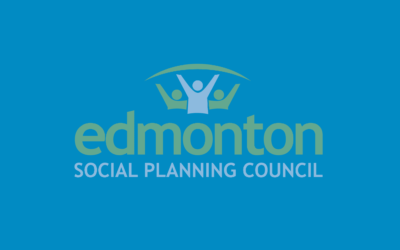Blog: From Trauma to Healing: The Impact of Childhood Abuse and Neglect on Adult Mental Health

Childhood trauma not only affects the present lives of children, but it can affect their future as adults. Their mental health can be impacted for the long term. However, a good support system can have powerful positive effects on their lives, creating resilience.
By Alejandra Hasbun, Practicum Student
Childhood is the most essential time for development. A child who experiences neglect, too much stress, and trauma, can have serious negative consequences on that child’s life and future. A traumatic childhood can critically affect adult life.
Children are learning how to regulate emotions, problem-solve, and acquire basic skills. Further science has shown us how trauma and stress impact children’s developing brains, affecting how they react to day-to-day situations. (1) If natural processes of child development are interrupted, they can have lasting outcomes as an adult. A child that is never spoken to will not acquire a language (2); a child that is never loved will struggle to love. The main caregivers are usually the child’s role models, and whatever they do or not do impacts what the child learns about life and their behaviour. (3) A supportive adult figure, whether caregiver or not, in a child’s life can help them excel and overcome hardship through the development of resilience.
How Childhood Trauma affects adults?
In Canada, 1 in 3 people has experienced traumatic childhood experiences. (4) How does this affect later life? Adults with a past of childhood trauma can have heightened rates of anxiety, depression, suicidal thoughts, PTSD, difficulty regulating emotions, substance use, experience being unhoused, and live in poverty or with low income. (5) Early chronic life stress, which can be caused by abuse or trauma, can cause the body to not be able to regulate stress properly. (6) Stress management is important because stress affects almost every aspect of a person’s life. Chronic or unhealthy stress can cause negative health impacts including heightened rates of mental unwellness, heightened blood pressure, heart disease, substance use and more. Chronic or unhealthy stress can impact people emotionally and socially including difficulty maintaining relationships, or adhering to social norms (7)
The lasting effects of trauma can also be seen through generational and historical trauma, defined as transmitting the impact of traumatic events to younger generations. Older generations not being able to receive the help they needed, can transfer negative emotions to the younger generation, unintentionally contributing to a continuation of a trauma cycle, or cannot help the new generation deal with traumas they are experiencing. (8) Usually, this trauma is caused by recurring systemic oppressions, colonization and violence. (9) It can be hard for those that experienced generational/historical trauma to search for the help needed, because of, discrimination, cultural barriers, or unavailability.
Resiliency
A traumatic childhood does not have to equal a bad adulthood. Children that have at least one supportive figure in their life are more likely to have reduced stress and clear goals for their future. Even if that figure is not a parent, the support can highly affect the child’s life positively. (10) Children that have experienced abuse and trauma need a healthy adult role model, someone that is by their side, does not give up on them, and is someone they can trust, for this marks a significant difference in their lives helping them build relationships and confidence. Early intervention can foster resilience in children, which is defined as the capacity to utilize holistic resources to maintain one’s well-being during challenging times. Resilient children can manage external stressors positively and develop a problem-solving mind. (11)
What can be done?
Awareness of the impact of childhood trauma on adult mental health is the first step as every person can start to make a difference in the lives of future generations. You can help support organizations that help families grow together. You can help impact a person’s life, consider volunteering at these organizations: Boys and Girls Club, Bent Arrow, Africa Centre, and Terra Centre.
Here are three agencies in Edmonton, Alberta that can help children experiencing trauma or learn more about how to take action: Little Warriors, Zebra Centre, and Metis Child & Family Services.
If you suspect a child is experiencing abuse or neglect, please call the crisis line at 2-1-1.
Alejandra Hasbun (she/her), an international student from El Salvador, possesses a strong interest in the field of human behavior and mental health advocacy. In her spare time, her passion lies in travelling and exploring the world, immersing herself in new cultures, and gaining a different understanding of the world through meeting new people.
REFERNCES:
1- Perry B. (2005), Maltreatment and the Developing Child: Early Childhood Experience Affects Child and Culture. https://www.lfcc.on.ca/mccain/perry1.html
2- Linguistic Society of America, FAQ: Language Acquisition |. (n.d.). https://www.linguisticsociety.org/resource/faq-how-do-we-learn-language
3- CDC (2021, September 23), Child Development Basics |.. Centers for Disease Control and Prevention. https://www.cdc.gov/ncbddd/childdevelopment/facts.html
4- McGill University. (2023). Too many Canadian children and youth are impacted by trauma. Canadian Consortium on Child and Youth Trauma. https://www.traumaconsortium.com/en/
5- ISTSS – Childhood Trauma. (n.d.). https://istss.org/public-resources/trauma-basics/what-is-childhood-trauma/effects-of-childhood-trauma
6- Carpenter, L. L., Shattuck, T. T., Tyrka, A. R., Geracioti, T. D., & Price, L. H. (2010). Effect of childhood physical abuse on cortisol stress response. Psychopharmacology, 214(1), 367–375. https://doi.org/10.1007/s00213-010-2007-4
7- Mayo Clinic Staff. (2021, July 8). Chronic stress puts your health at risk. Mayo Clinic. https://www.mayoclinic.org/healthy-lifestyle/stress-management/in-depth/stress/art-20046037?reDate=31012023
8- Ryder, G. (2022, April 15). How Intergenerational Trauma Impacts Families. Psych Central. https://psychcentral.com/lib/how-intergenerational-trauma-impacts-families
9- Resource Guide to Trauma-Informed Human Services. (n.d.). The Administration for Children and Families. https://www.acf.hhs.gov/trauma-toolkit
10- Harvard University. (2021, April 23). Three Early Childhood Development Principles to Improve Child Outcomes. Center on the Developing Child at Harvard University. https://developingchild.harvard.edu/resources/three-early-childhood-development-principles-improve-child-family-outcomes/
11- Ungar, M. (2021, July 19). U is for Michael Ungar: Developing Resilience In Children. The Positive Encourager. https://www.thepositiveencourager.global/michael-ungar-talks-about-developing-resilience-in-children-video/

